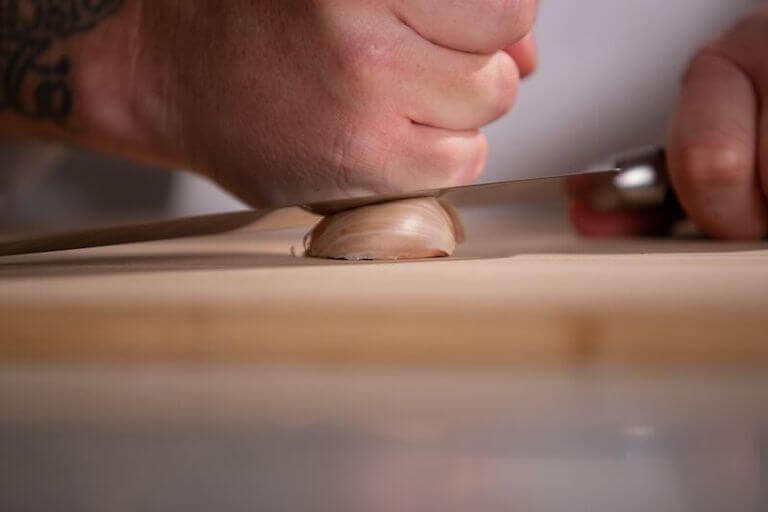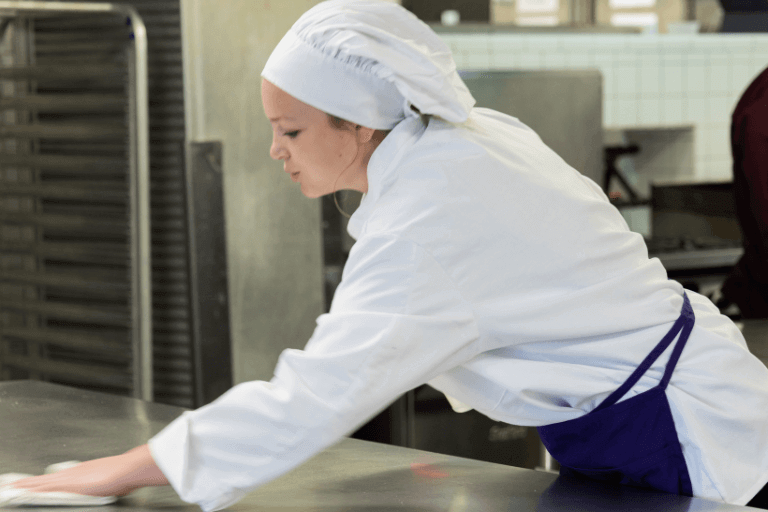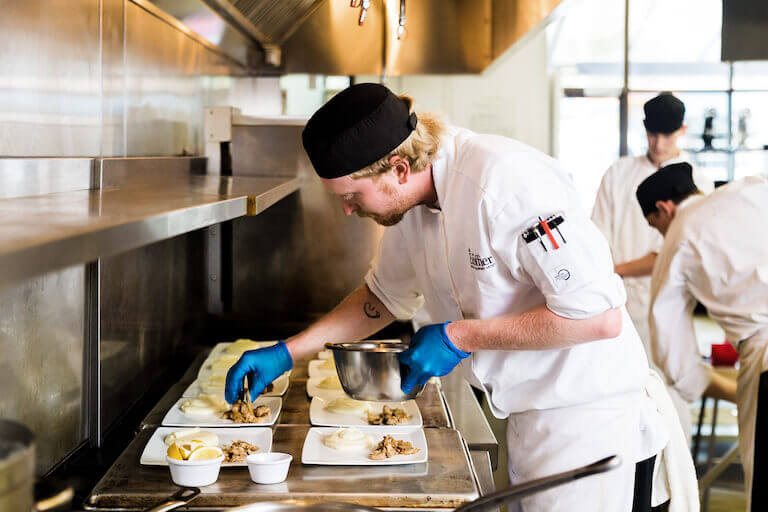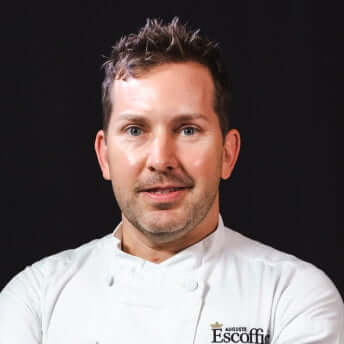Starting a new journey in culinary school is an exciting endeavor. However, it can be a common experience for students—in any school—to feel stressed or overwhelmed. There are new skills to master, full schedules to navigate, and personal commitments that require your attention. Thankfully, there are powerful tools, like mindfulness techniques, to help you reduce stress and improve your mental well-being.
Contrary to popular belief, mindfulness isn’t just meditation and affirmations. It can be woven into the very fabric of your culinary journey, so you don’t have to think about adding one more thing to your already full schedule.
How Mindfulness Can Reshape Student Stress
Psychological distress is a prevalent challenge for students dealing with academic pressure, plans for the future, and a new career, along with the other responsibilities of life. A 2021 study published in the International Journal of Environmental Research and Public Health found that mindfulness-based therapy practices can be an effective means to help improve student stress.
What Is Mindfulness?
Mindfulness is the practice of remaining present in the moment and not judging the thoughts and emotions you’re experiencing.
Additional benefits to incorporating mindfulness techniques into your day can include:
Overall, mindfulness can help you to slow your mind and body and remain in the moment instead of worrying about your upcoming exam or future career plans.
In addition, having a strong support system can help you navigate the stress and challenges you experience. If you’re a current student, Escoffier understands that obstacles surface throughout school and life and want to help support you along the way. Online students can connect with a Success Coach for support, and Student Success Managers are available for on-campus students.
6 Mindfulness Skills to Recenter Yourself
There are six mindfulness skills often taught to patients of dialectical behavioral therapy (DBT), which you can learn to incorporate into your daily life:
1. ‘Observe’ what’s happening in and around you
Mindfulness begins with increasing awareness of what’s happening around you and within you. It’s paying attention to the details that are easy to overlook, such as the sights, sounds, and smells in your environment.
You also want to intentionally notice what’s happening within you:
- How does your body feel?
- What are you thinking about?
- Which emotions are you experiencing?
Becoming more aware of your surroundings can help you slow down and bring you into the present moment.
2. ‘Describe’ your observations
As you begin to increase your awareness of your environment, thoughts, and feelings, shift to putting words to the observations. Focus on details and facts. For example, instead of thinking “something smells good,” think about the distinct smells, such as the nuttiness of the roasted garlic.

Aromatics like garlic offer great opportunities to engage your senses.
When it comes to your feelings, instead of thinking about how “stressed” you feel, identify exactly what you’re feeling, such as “I feel anxious about my upcoming test.”
Applying this skill to your feelings and emotions can help you have more controlled emotional responses to help you communicate your needs and improve your problem-solving ability. So, from the example above, when you know your stress is related to a test, you can focus on ensuring you study properly.
3. ‘Participate’ in the present moment
It can feel easier to stay fully present in the moment when doing something you enjoy in the kitchen, like slicing, dicing, and sautéing. But, you may find that your mind has a tendency to wander as you transition to a necessary but not as exciting activity, like cleaning your workstation. To remain present in the moment, try to intentionally complete each task and engage in each movement. Notice the flow of your hand as you wipe the counter. Focus on how the clean space makes you feel as you put things away.

Focusing on the task at hand can ground yourself in the present moment.
Choosing to stay engaged in the present moment can help lower stress and increase your enjoyment of that activity, even the ones that aren’t your favorites.
4. Embrace a ‘non-judgemental’ stance
An essential part of mindfulness is remaining non-judgemental in your thoughts and observations of yourself and those around you. We tend to judge things in life, including our thoughts and experiences, as good, bad, or neutral. We strive for things we think are good, do our best to avoid the bad and ignore the neutral.
Mindfulness teaches people to experience all the parts of life and be present for them without labeling and judging. Doing so can help you be happier and more open with yourself and others.
5. Complete tasks ‘one-mindfully’
‘One-mindfully’ is a term for fully focusing on one task at a time. It’s about removing distractions and giving your entire focus and effort to a single task.
For example, if studying for an exam, you give your full attention to the information you’re studying without allowing your mind to wander to your last exam, upcoming project, or what you’re doing later that day. This strategy can help increase your attention span and productivity.
6. Find ‘effective’ solutions
As part of mindfulness, ‘effectiveness’ is about remaining open and flexible to all solutions. This skilled way of thinking allows you to think outside the box from what you usually do to explore the best options. For example, focusing on ‘effectiveness’ in the best way to accomplish your daily to-do list may lead you to rearrange the order in which you typically complete things.
You’re focused on looking for what works, even if it’s different than how you usually do it.
Using these six skills can help you be more aware of yourself and your surroundings while refocusing your attention and calming your emotions, which can help you thrive even in high-stress situations.
Mindfulness Activities for Students: Keeping it Cool in the Kitchen
With the above mindfulness skills in mind, here are several examples of how you can put them to use in your daily life:
Engage in Mindful Cooking
Mindful cooking involves immersing all of your senses in the experience. Listen to the rhythm of the knife as you chop crisp celery. Take in the aroma of the caramelizing onions. Notice the vibrant hues of the chopped bell peppers in the pan. Feel the cool weight of the dough against your fingers as you knead. Shifting your mind to the sights, smells, and sounds around you can help you move away from anxious thoughts.

Mindful cooking uses all of your senses to make you feel more connected to your work.
Bring Mindfulness into Your Mealtime
Mindful eating is intentionally slowing down during your meal to notice your food’s tastes, textures, and smells. It brings you into the moment and helps you refocus. For a culinary twist, you can try adding new spices as you cook. Then, as you eat, pay attention to the difference in flavors, which can have the added benefit of helping develop your palate.
In addition, it can be helpful to be mindful of the foods you choose to eat because they can impact your mental health.
Mindfully Move Your Body
Mindful movement can include any exercise you enjoy, from walking and yoga to dancing or weight lifting. As you move, add the mindfulness element by focusing on the feeling of your body and your surroundings. Notice each muscle as it contracts and releases, feel the breath in your lungs and listen to the sounds around you.
Mindful movement can be as simple as adding calf raises as you wash dishes or doing squats as you wait for the kitchen timer. Look for small ways to add movement to your day.
In addition to helping you be more mindful, exercise has the added benefit of boosting your mood and mental health.
Use Deep Breathing Techniques
Breathing exercises, like Box Breathing, help you slow your thoughts while temporarily shifting your thinking to your breath. Deep breathing has been connected with lower blood pressure and reduced stress and anxiety.
Box breathing is easy to do anywhere, including the classroom, kitchen, and even in a crowd.
Steps for Box Breathing:
- Breathe in while counting to four
- Hold your breath as you count to four
- Slowly exhale while counting to four
- Wait for four seconds before taking your next breath
Create a Mindful Moment
Mindfulness doesn’t require you to withdraw to a quiet room alone or readjust your schedule. Instead, you can add small mindful moments to your day when you have time or as you engage in other activities. It’s taking advantage of a short moment in your day to focus on mindfulness.
The Squeeze and Release mindfulness technique is one that you may find easy to incorporate throughout your day. It helps you focus on different muscles in your body to help shift your focus to your body and away from anxious thoughts.
Choose specific muscles to tighten, hold temporarily, and then release. You can use this technique while going to sleep or even quickly when sitting in your car or standing at the counter.
Practice Mindfulness Meditation
Mindfulness meditation can help you learn to calm your mind and body. While meditating, you’ll learn to pay attention to what’s happening in and around you. As stressful thoughts arise, allow them to pass without focusing on or judging them. One strategy is to think of them as clouds gently drifting through your mind.
Meditation apps, like Headspace and Calm, provide guided meditation sessions to help you get started.
Thrive in Your Culinary Journey with Less Stress
Are you interested in pursuing your dream career in culinary arts but concerned about balancing classes with work and life? These mindfulness techniques can help, and more importantly, Escoffier provides various online and on-campus programs designed to help fit your life, including our Holistic Nutrition & Wellness program that further explore wellness concepts like mindfulness.
Reach out to us today to learn how you might start your educational journey and thrive.
TO LEARN MORE ABOUT MANAGING STRESS WHILE ATTENDING CULINARY SCHOOL, TRY THESE ARTICLES NEXT:
- Why Stress Management Is Important for Culinary Students
- How Chefs Can Manage Stress In a Professional Kitchen
- How Full-Time, Working Adults Can Succeed in Online Culinary School
*Information may not reflect every student’s experience. Results and outcomes may be based on several factors, such as geographical region or previous experience.






